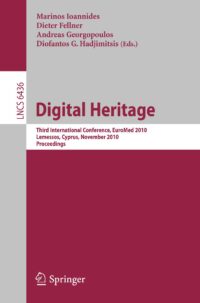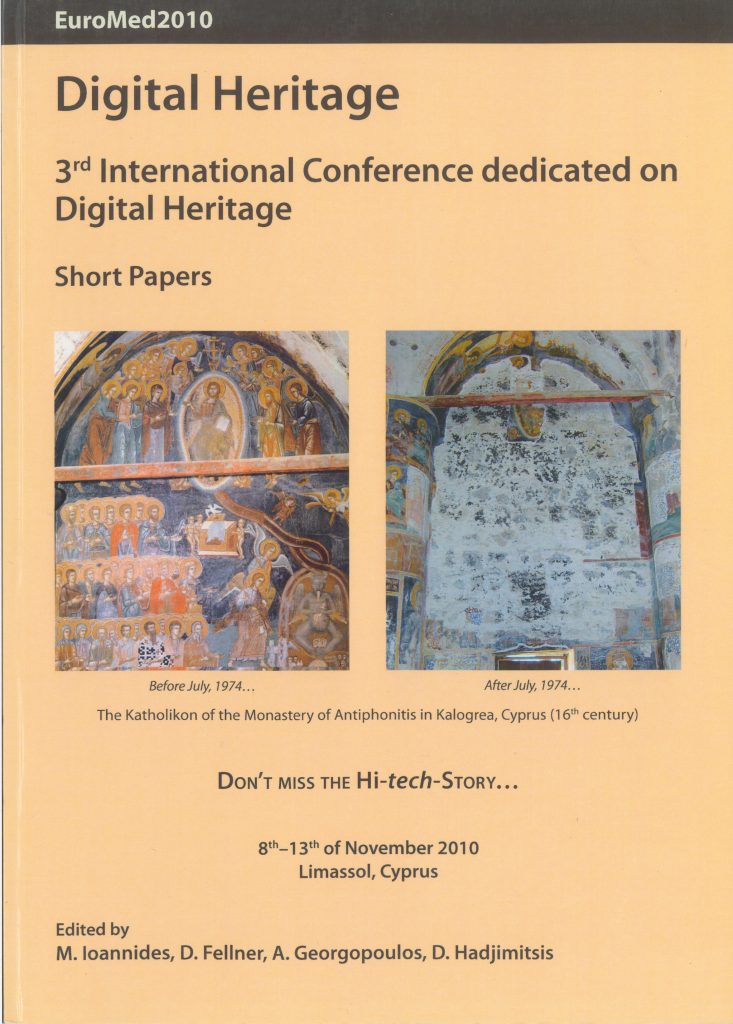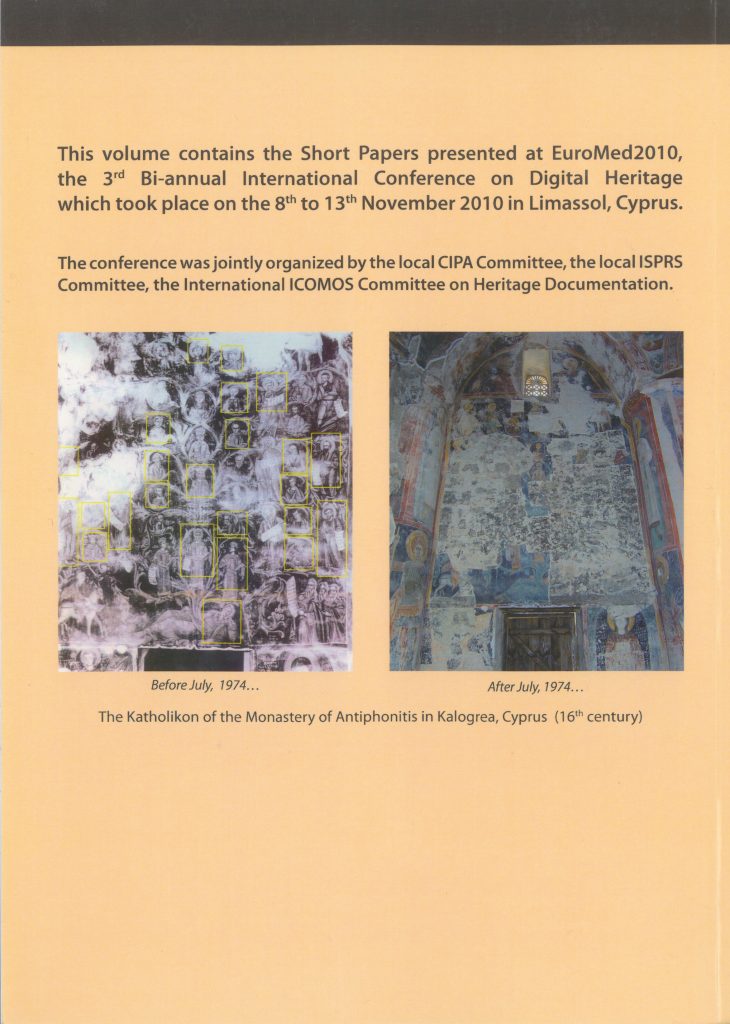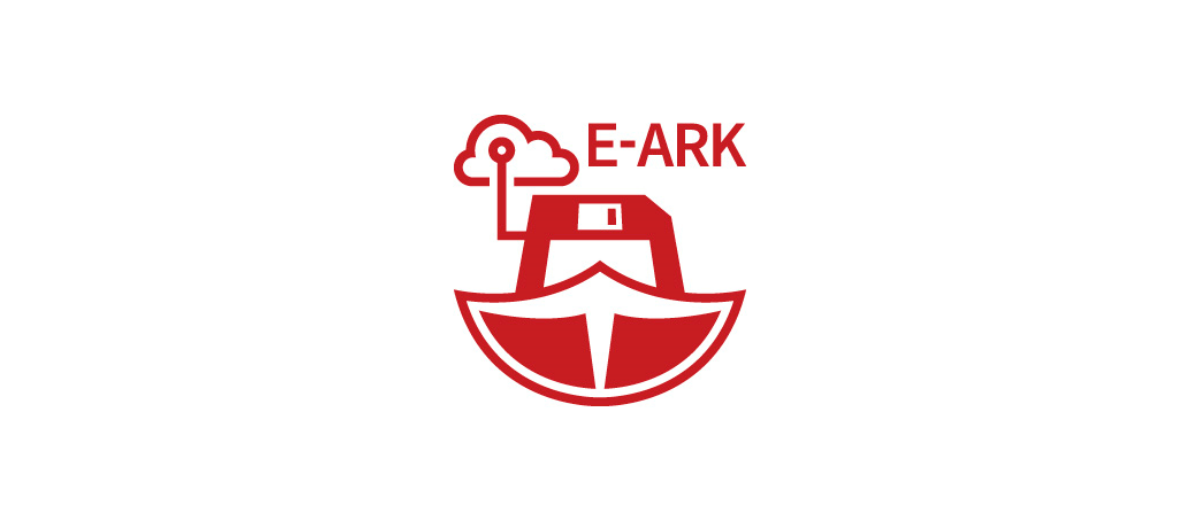
Digital Heritage
Third International Euro-Mediterranean Conference, EuroMed 2010, Lemessos, Cyprus, November 8-13, 2010. Proceedings
This volume comprises the proceedings of the Third International Euro-Mediterranean Conference (EuroMed 2010) on the historical island of Cyprus. The focal point of this conference was digital heritage, which all of us involved in the documentation of cultural heritage continually strive to implement. The excellent selection of papers published in the proceedings reflects in the best possible way the benefits of exploiting modern technological advances for the restoration, preservation and e-documentation of any kind of cultural heritage. Above all, we should always bear in mind that what we do now may be used by people in another century to repair, rebuild or conserve the buildings, monuments, artifacts and landscapes that seem important. Recent events like earthquakes, tsunamis, volcanic eruptions, fires and insurrections show that we can never be too prepared for damage to, and loss of, the physical and, non-tangible elements of our past and, in general, our cultural heritage. To reach this ambitious goal, the topics covered included experiences in the use of innovative recording technologies and methods, and how to take best advantage of the results obtained to build up new instruments and improved methodologies for do- menting in multimedia formats, archiving in digital libraries and managing a cultural heritage. Technological advances are very often reported in detail in specialized fora. This volume of proceedings establishes bridges of communication and channels of co- eration between the various disciplines involved in cultural heritage preservation.


Digital Heritage – Short Papers
This volume comprises the Short Papers proceedings of the Third International Euro-Mediterranean Conference (EuroMed 2010) on the historical island of Cyprus. The focal point of this conference was digital heritage, which all of us involved in the documentation of cultural heritage continually strive to implement. The excellent selection of papers published in the proceedings reflects in the best possible way the benefits of exploiting modern technological advances for the restoration, preservation and e-documentation of any kind of cultural heritage. Above all, we should always bear in mind that what we do now may be used by people in another century to repair, rebuild or conserve the buildings, monuments, artifacts and landscapes that seem important. Recent events like earthquakes, tsunamis, volcanic eruptions, fires and insurrections show that we can never be too prepared for damage to, and loss of, the physical and, non-tangible elements of our past and, in general, our cultural heritage. To reach this ambitious goal, the topics covered included experiences in the use of innovative recording technologies and methods, and how to take best advantage of the results obtained to build up new instruments and improved methodologies for do- menting in multimedia formats, archiving in digital libraries and managing a cultural heritage. Technological advances are very often reported in detail in specialized fora. This volume of proceedings establishes bridges of communication and channels of co- eration between the various disciplines involved in cultural heritage preservation.


